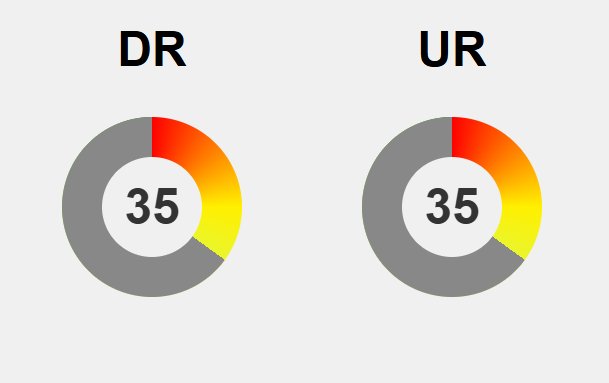Discover the extraordinary journey of Joan of Arc, a humble peasant girl whose unwavering faith and divine visions propelled her into a leadership role that challenged societal norms and redefined what it means to lead. Her story is more than battlefield triumphs—it’s about a courageous belief in higher purpose that inspired armies and shattered gender expectations. How did her visions from saints and angels give her the moral authority to command, dress as a soldier, and lead daring assaults? Her fearless actions turned the tide of history, yet also led to her tragic downfall. What secrets lie behind her lasting influence, and how can her unwavering conviction inspire today’s leaders? This captivating exploration reveals how faith, resilience, and moral clarity can leave a legacy that endures through centuries, inviting us to question the limits society imposes and to lead with purpose driven by unwavering belief.
Unwavering Faith and Bold Leadership: The Joan of Arc Inspiration
Joan of Arc’s story is more than just a tale of battlefield victories; it’s a powerful example of leadership fueled by unwavering faith. Rising from a humble peasant girl to a pivotal figure in France’s history, her journey demonstrates how conviction and moral purpose can inspire others and shape the course of events. Her leadership wasn’t rooted in formal training or authority but in a deep spiritual connection that gave her confidence and moral clarity. This blend of faith and action turned her into a symbol of resilience and hope, showing that belief in a higher purpose can turn the impossible into reality.
What truly set Joan apart was her extraordinary relationship with her visions and divine messages. From a young age, she reported encounters with saints and angels, messages she believed were direct communications from God. These spiritual experiences weren’t fleeting—they became the foundation of her identity and her conviction that she was called for a special mission. Her trust in these divine messages gave her the moral authority to challenge societal norms and take bold actions that defied expectations for women of her time.
Her faith wasn’t passive; it was active and transformative. It inspired her to dress as a soldier, ride into battle, and lead troops with unwavering certainty. Joan believed her visions signaled she was chosen to save France, and her steadfast belief in this divine purpose fueled her resilience through setbacks and opposition. Her leadership was driven by this unshakable sense of higher calling, which motivated her followers and inspired hope even in the darkest moments.
Joan’s story also highlights how her faith and moral clarity challenged traditional ideas of gender and leadership. Dressed as a soldier and commanding troops in combat, she broke societal expectations and proved that purpose and conviction matter more than gender. Her actions encouraged others to see strength and authority as accessible to anyone driven by higher ideals. Joan’s example continues to inspire those who believe that leadership rooted in faith and purpose can defy norms and inspire change.
Her leadership was characterized by bold decisions and a fearless attitude. She seized opportunities others might have overlooked, leading daring assaults and rallying troops in moments of crisis. Her trust in divine guidance often translated into innovative tactics that shifted the momentum of the Hundred Years’ War. Despite the risks, her unwavering belief in her divine mission kept her focused, resilient, and ultimately, a catalyst for change.
Joan’s rise was not without danger. Her unwavering faith and her challenge to societal conventions made her a target for political and religious enemies. Her military successes, while inspiring, also led to her downfall when she was captured and tried. Yet, her impact remained undeniable. Her story continues to remind us that leadership driven by higher purpose and moral conviction can leave a lasting legacy, inspiring generations long after her time.
Her life embodies the idea that true leadership begins with conviction and purpose. Joan’s unwavering faith and her willingness to challenge societal norms demonstrate that authentic influence arises from acting with integrity, even under pressure. Her example encourages us to pursue higher ideals with courage and resilience, trusting that a clear sense of purpose can inspire others and create lasting change. Joan’s leadership teaches us that belief in something greater can propel us beyond ordinary limits, leaving a legacy that endures through the ages.
Visions from God: The Humble Beginnings of a Divine Leader
Joan of Arc’s journey into leadership began long before she took up arms. Growing up in a small village in northeastern France, she was a humble peasant girl with a deep and unwavering faith. Her days were filled with chores and farm work, but even in those simple routines, her spiritual devotion stood out. From a young age, Joan experienced vivid visions and voices she believed came directly from saints and angels, guiding her with messages that felt divine in origin. These encounters weren’t fleeting moments—they became the core of her sense of purpose and identity.
Her visions often appeared during prayer or moments of quiet reflection, offering her instructions that she believed were divine commands. She saw these messages as signs that she had a higher calling—one that extended far beyond her rural existence. Her unwavering trust in these divine communications gave her a sense of destiny and confidence that set her apart from others in her community. These spiritual experiences weren’t just personal; they became her moral compass, shaping her understanding of her role in helping France during a time of crisis.
Society in her era placed strict limits on women, confining them mainly to domestic roles with little room for independence. Joan’s visions challenged these norms, providing her with a purpose that transcended societal expectations. She believed her divine messages signaled she was chosen by God to lead, and this conviction gave her the courage to see herself as more than a peasant girl. Her sense of divine mission became the foundation for her confidence, propelling her into actions that defied traditional gender roles and expectations.
Her early spiritual encounters weren’t just personal revelations—they became the moral backbone of her leadership. Believing her visions were direct messages from heaven, she felt compelled to act, even when others doubted her. This divine guidance fortified her resolve and helped her navigate skepticism and opposition, especially as she prepared to step into roles traditionally denied to women. Her visions provided clarity and purpose, transforming her into a leader driven by faith and a sense of divine destiny.
From her humble beginnings, Joan’s visions set her on a path that would change history. They weren’t mere mystical experiences but the core of her moral authority and her conviction that she was destined for greatness. Her unwavering belief in her divine mission gave her the strength to challenge societal constraints and to lead with purpose. These early encounters laid the groundwork for a remarkable journey—one that would see her rise from a village girl to a symbol of faith-driven leadership and unwavering resilience.
Daring Strategies and Military Bravery: Joan’s Impact on France’s Fight
Joan of Arc’s leadership on the battlefield was nothing short of revolutionary. Despite lacking formal military training, her unwavering faith and sense of divine purpose galvanized her troops and boosted morale during critical moments. She became a beacon of hope amid the chaos of the Hundred Years’ War, inspiring her soldiers to believe in victory when defeat seemed imminent. Her approach combined bold, unconventional decisions with a fearless attitude, often defying traditional tactics rooted in experience and hierarchy. Every move she made was driven by her conviction that divine guidance was guiding her—transforming spiritual inspiration into tangible military success.
What made her impact even more remarkable was her ability to turn her unwavering faith into strategic action. Believing she was chosen by God to lead France to victory, Joan’s confidence never wavered, even in the face of danger. Her moral authority, rooted in her visions and divine messages, motivated soldiers to follow her into perilous battles, forging a sense of unity that transcended ordinary command. Her leadership created a collective purpose—her certainty in divine support emboldened her troops and instilled resilience in them, even when circumstances appeared bleak.
Joan challenged societal expectations simply by her presence on the battlefield. Dressed as a soldier and riding into combat, she defied the notion that leadership belonged solely to men. Her actions proved that purpose and conviction matter more than gender, inspiring others to see strength and authority as accessible to anyone driven by higher ideals. Her example shattered stereotypes, encouraging future generations to rethink what leadership could look like—especially for women.
Her strategic bravery extended to seizing daring opportunities others might have dismissed. Joan was willing to lead bold assaults and rally troops in critical moments, trusting her divine guidance to inform her decisions. This fearless approach often resulted in turning the tide of the war, demonstrating that faith-driven tactics could be just as effective as traditional military experience. Her willingness to act decisively, even in the face of immense risk, underscored her unwavering belief that higher purpose could shape military outcomes.
However, her fearless leadership also made her a target. Her success and her challenge to societal norms drew suspicion from political and religious authorities, ultimately leading to her capture. Despite her tragic fall, her impact remained undeniable. Joan’s military leadership proved that conviction rooted in higher purpose can influence history profoundly, inspiring others to lead with moral clarity and unwavering belief, even amidst adversity.
Her legacy continues to inspire discussions on leadership and courage, highlighting the importance of conviction and purpose in overcoming adversity. For those interested in understanding her life and the profound influence she had, exploring detailed accounts of her remarkable journey can offer valuable insights. You can learn more about her inspiring story and the enduring legacy of Joan of Arc by visiting Joan of Arc.
The Legacy of Faith and Courage: Why Joan’s Influence Lasts Through the Ages
Joan of Arc’s lasting influence comes from a powerful mix of unwavering faith, bold defiance of societal norms, and the moral authority she embodied. Her firm belief that divine guidance was at the core of her mission gave her a purpose that transcended her immediate circumstances, inspiring countless generations to see conviction and purpose as vital qualities of true leadership. Her story demonstrates how a single person’s dedication to a higher calling can ignite monumental change, even when faced with overwhelming opposition.
What truly set Joan apart was her deep, unshakeable faith. Believing her visions and messages from saints and angels were direct communications from God, she gained confidence and moral clarity that fueled her resilience. This conviction was more than private belief; it became her moral backbone, turning her into a symbol of moral courage. Her unwavering trust in her divine mission attracted followers who saw her as a living testament to the power of faith-driven leadership.
Faith, for Joan, was active and transformative. It propelled her to dress as a soldier, lead troops into battle, and speak with authority—actions that challenged the expectations of women in her era. Her willingness to break societal norms inspired others to reconsider what leadership could look like. Her example planted seeds of possibility, encouraging future generations to view strength and authority as accessible to anyone driven by purpose and conviction.
Her influence also stems from her ability to inspire through action and conviction. Joan’s readiness to seize daring opportunities and her fearless pursuit of her divine calling often turned the tide of critical moments. Her confidence in divine support emboldened her troops, creating a collective purpose that transcended mere military strategy. This moral certainty became a rallying point, demonstrating that faith and commitment could overcome even the most daunting obstacles.
Despite her tragic downfall, Joan’s impact endures because she exemplifies how faith and purpose can inspire resilience and social change. Her life challenges us to question limitations, to pursue higher ideals, and to lead with integrity. She remains a symbol of how unwavering belief and moral clarity can leave an indelible mark on history. Her legacy inspires us to act with conviction, trusting that true influence comes from acting in alignment with our deepest values.
Her story reminds us that leadership rooted in higher purpose is timeless. Joan’s unwavering faith and her challenge to societal expectations continue to resonate, proving that genuine influence arises from staying true to oneself and one’s beliefs. Her enduring legacy encourages us to cultivate inner strength, act with purpose, and lead courageously—knowing that the power of faith and conviction can spark lasting change across generations.
Leadership Lessons from Joan of Arc: Faith, Purpose, and Societal Change
Joan of Arc’s story offers timeless lessons about leadership rooted in conviction and purpose. Her unwavering faith and sense of divine calling show how belief can ignite action and sustain resilience, even under the heaviest pressure. Leaders today can learn that staying true to core values, especially when faced with opposition, is a powerful way to inspire trust and loyalty. Her example reminds us that authentic leadership isn’t about seeking approval or fitting into societal molds—it’s about acting with integrity and purpose, even when the stakes are high.
Challenging societal norms requires courage and a clear moral compass. Joan’s willingness to break traditional roles and take bold risks demonstrated that true leadership often involves defying expectations and risking personal safety. Her life encourages us to question the limits society places on us and to pursue higher ideals with determination. Leaders who act authentically and with purpose can shift perceptions, create new opportunities, and inspire others to challenge the status quo.
Faith remains a vital ingredient in resilient leadership. Joan’s unwavering belief in her divine visions gave her the strength to face setbacks like imprisonment and her eventual death. Her steadfast trust in a higher purpose turned obstacles into opportunities for growth. Leaders who draw on a deep sense of purpose—whether spiritual, moral, or personal—find that their resilience grows stronger in adversity, enabling them to guide others through difficult times with conviction.
Her life also highlights how breaking societal constraints can be a catalyst for broader change. Joan’s readiness to step into roles traditionally reserved for men challenged gender stereotypes and expanded ideas of leadership. Her example shows that pushing past societal expectations can inspire others to see their potential and pursue their dreams, regardless of gender or background. Such acts of courage can spark social transformation and open doors for future generations.
Joan’s influence endures because she embodies the idea that leadership driven by purpose and moral clarity leaves a lasting legacy. Her story continues to motivate those who believe that change is possible through faith, perseverance, and authentic action. Her example encourages us to cultivate inner strength, act with integrity, and lead with conviction—traits just as relevant today as they were centuries ago.
Trusting your instincts and staying committed to your higher calling can be transformative. Joan’s journey proves that true leaders don’t waver in the face of doubt or danger; instead, they lean into their core beliefs and press forward. This perseverance, grounded in purpose, inspires others to believe in the power of conviction and the importance of standing up for what’s right, even when the odds seem insurmountable.
Her life also reminds us that sacrifice is often part of meaningful leadership. Facing danger and personal risk, Joan demonstrated that real change sometimes requires personal courage and resilience. Leaders willing to make sacrifices for their higher purpose can motivate others to do the same, fostering a shared sense of commitment and collective strength. Her legacy shows that faith and purpose can create ripples of influence that extend well beyond individual lives.






